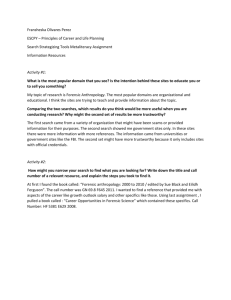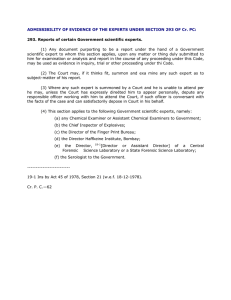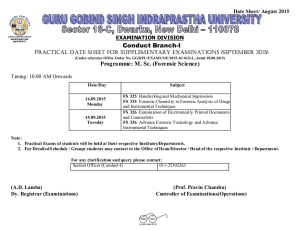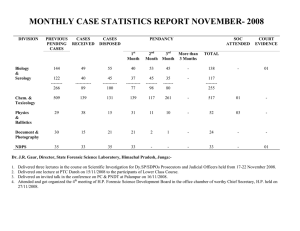2009-30March
advertisement
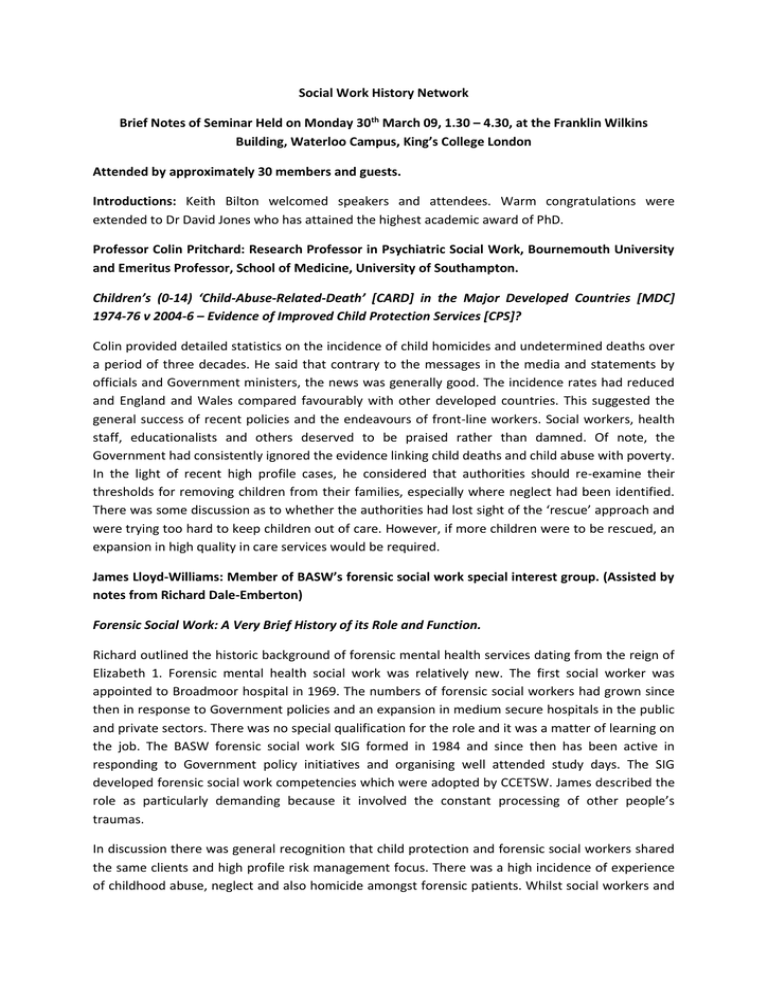
Social Work History Network Brief Notes of Seminar Held on Monday 30th March 09, 1.30 – 4.30, at the Franklin Wilkins Building, Waterloo Campus, King’s College London Attended by approximately 30 members and guests. Introductions: Keith Bilton welcomed speakers and attendees. Warm congratulations were extended to Dr David Jones who has attained the highest academic award of PhD. Professor Colin Pritchard: Research Professor in Psychiatric Social Work, Bournemouth University and Emeritus Professor, School of Medicine, University of Southampton. Children’s (0-14) ‘Child-Abuse-Related-Death’ [CARD] in the Major Developed Countries [MDC] 1974-76 v 2004-6 – Evidence of Improved Child Protection Services [CPS]? Colin provided detailed statistics on the incidence of child homicides and undetermined deaths over a period of three decades. He said that contrary to the messages in the media and statements by officials and Government ministers, the news was generally good. The incidence rates had reduced and England and Wales compared favourably with other developed countries. This suggested the general success of recent policies and the endeavours of front-line workers. Social workers, health staff, educationalists and others deserved to be praised rather than damned. Of note, the Government had consistently ignored the evidence linking child deaths and child abuse with poverty. In the light of recent high profile cases, he considered that authorities should re-examine their thresholds for removing children from their families, especially where neglect had been identified. There was some discussion as to whether the authorities had lost sight of the ‘rescue’ approach and were trying too hard to keep children out of care. However, if more children were to be rescued, an expansion in high quality in care services would be required. James Lloyd-Williams: Member of BASW’s forensic social work special interest group. (Assisted by notes from Richard Dale-Emberton) Forensic Social Work: A Very Brief History of its Role and Function. Richard outlined the historic background of forensic mental health services dating from the reign of Elizabeth 1. Forensic mental health social work was relatively new. The first social worker was appointed to Broadmoor hospital in 1969. The numbers of forensic social workers had grown since then in response to Government policies and an expansion in medium secure hospitals in the public and private sectors. There was no special qualification for the role and it was a matter of learning on the job. The BASW forensic social work SIG formed in 1984 and since then has been active in responding to Government policy initiatives and organising well attended study days. The SIG developed forensic social work competencies which were adopted by CCETSW. James described the role as particularly demanding because it involved the constant processing of other people’s traumas. In discussion there was general recognition that child protection and forensic social workers shared the same clients and high profile risk management focus. There was a high incidence of experience of childhood abuse, neglect and also homicide amongst forensic patients. Whilst social workers and others should feel encouraged by the positive trends in child care homicides, there were no grounds for complacency. One tragedy was always one too many. Furthermore, the consequences of childhood trauma were long lasting and far reaching. An article is in preparation for consideration by PSW. Date of next meeting SWHN and MRC are joining forces to organise a study day on Care Management. This will be held on 8th June, 1.30 – 4.30 at a KCL venue. Keith Bilton and James Blewett (MRC) will be arranging the event as I shall be on holiday (please note I’m planning to be away for the whole of June). It would be helpful if you would kindly let me know if you, colleagues or friends might be interested so I can let James Blewett know. The date of the next confirmed SWHN seminar is 6th October when Professor Sonia Jackson will speak on themes in social work journals and Professor Shula Ramon, on psycho-social concepts and social work. JR 3.4.09


